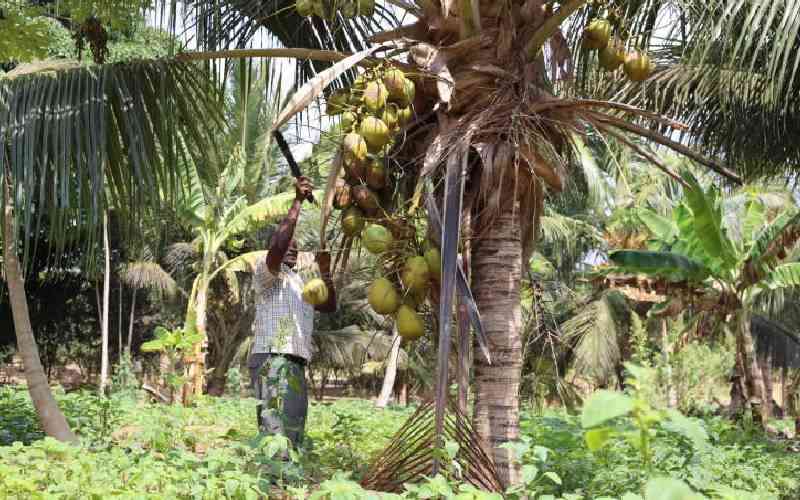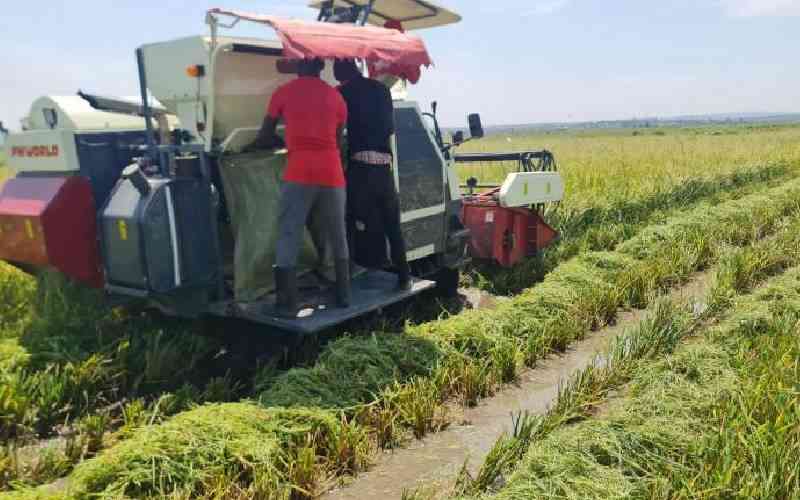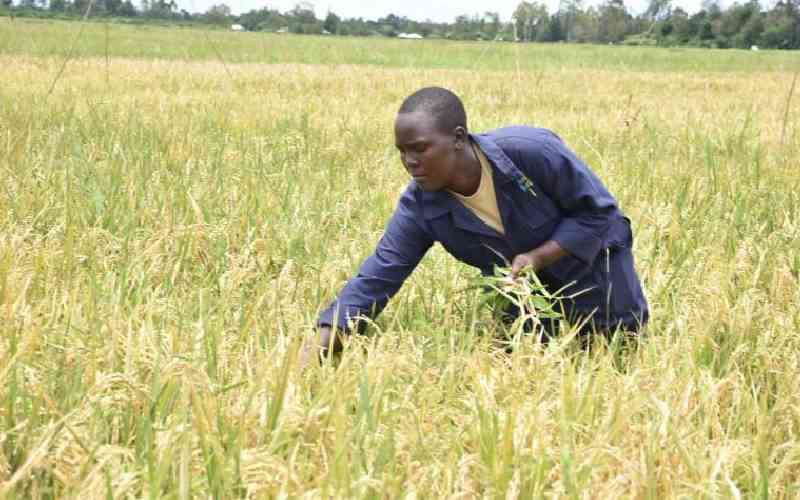By Joseph Maina
Last Friday, my family visited my old friend, Njenga, whose family lives in Mai Mahiu, a farming area sandwiched between Nairobi and Naivasha. Njenga and his wife, Agnes, lived in Nairobi for many years before they bought their farm five years ago, and said ‘adios’ to city life.
The Njengas are not the tunaomba serikali type some of us have become, sitting pretty in the cities and complaining about the high cost of living and whatnot. They are a hands-on couple, and they have made great strides these past few years.
This is manifest in their expansive swathe of land coloured in green, with several heads of dairy cattle, goats and poultry. I would be lying if I told you that my brain didn’t hurt slightly after witnessing all that growth.
“Sasa hii ndio maendeleo, Mama Jim. We must follow suit,” I piped as we admired the family’s flock of quails, numbering several hundreds.
This was the first time I tasted quail eggs, and I pitied myself for having missed this delicacy. I ate six of those eggs for lunch.
“It took lots and lots of hard work to achieve all this,” Njenga beamed as he took us round the farm, and I couldn’t help but pick out a thinly veiled air of superiority in his voice.
“We finally made it, but at what cost!” he bragged, before flaunting the merits of country life.
“Towns are not the best places to live in, Baba Jim. Look around us; we have plenty of fresh food, kind neighbours, fresh air and peace. We don’t have much of that inflation thing you city folks have been whining about lately. Plus, we don’t have to worry about annoying traffic jams or landlords baying for our wallets. Trust me, I’d never trade this life for the all the city’s glamour.”
Clearly, Njenga was having a great time ballyhooing his accomplishments. With his words, the bloke left me feeling like a colossal loser.
It was like the feeling you get after smiling at a beautiful lady and she bursts out laughing, only to realise there is piece of spinach on your teeth.
Further, the Njengas are blessed with eight children, and they are so hardworking that they make bees look lazy. Throughout our visit, those youngsters were chopping wood, helping in the kitchen, clearing mountains of muck from the cattle kraal and pushing wheelbarrows loaded with mitungis of water from a nearby stream.
The sheer stamina displayed by those rural, Kiswahili-shrubbing children almost made me pity my mboys. Like most of their peers in the city, my mboys have tested positive for laziness. Those lads cannot touch the dishes while the mboch is in the country, and it would take a court order for them to do their own laundry or make their beds.
To be fair, they occasionally chip in to help, and I have in mind the role they play by laying the table whenever a hot meal is on the way. They then quickly clear the path for the mboch as she arrives with the steaming food tray like she is some sort of human ambulance with a screaming siren on top of her head. Other than that, you might as well kiss their cooperation goodbye.
HUMBLED
Stay informed. Subscribe to our newsletter
When I proposed moving upcountry, the boys stood back and booed me with their stares.
“Ah, Daddy sisi hatupendi njaro za ocha,” Jimmy protested.
Russell, too, made it clear he has no business relocating to the ‘leafy’ environments of the likes of Mai Mahiu. But the comptroller, humbled by our hosts’ remarkable achievements, pledged to give serious thought to my proposition.
“That’s a great idea, Baba Jim. It is about time we invested in our future,” she said as we stood at the edge of the expansive farm, savouring the fresh air.
As she said this, I could envision Baba Jimmy doing rounds in his farm a few years down the line, resplendent in gumboots and a Ng’ombe cap, while awaiting fat monthly checks from Brookside Dairy and the Pyrethrum Board of Kenya.
Later that evening, we hopped into our prehistoric family chariot for the journey back home. The Njengas reluctantly bid us goodbye, with their workaholic kids promising to pay their city friends a visit next month.
 The Standard Group Plc is a
multi-media organization with investments in media platforms spanning newspaper
print operations, television, radio broadcasting, digital and online services. The
Standard Group is recognized as a leading multi-media house in Kenya with a key
influence in matters of national and international interest.
The Standard Group Plc is a
multi-media organization with investments in media platforms spanning newspaper
print operations, television, radio broadcasting, digital and online services. The
Standard Group is recognized as a leading multi-media house in Kenya with a key
influence in matters of national and international interest.
 The Standard Group Plc is a
multi-media organization with investments in media platforms spanning newspaper
print operations, television, radio broadcasting, digital and online services. The
Standard Group is recognized as a leading multi-media house in Kenya with a key
influence in matters of national and international interest.
The Standard Group Plc is a
multi-media organization with investments in media platforms spanning newspaper
print operations, television, radio broadcasting, digital and online services. The
Standard Group is recognized as a leading multi-media house in Kenya with a key
influence in matters of national and international interest.








